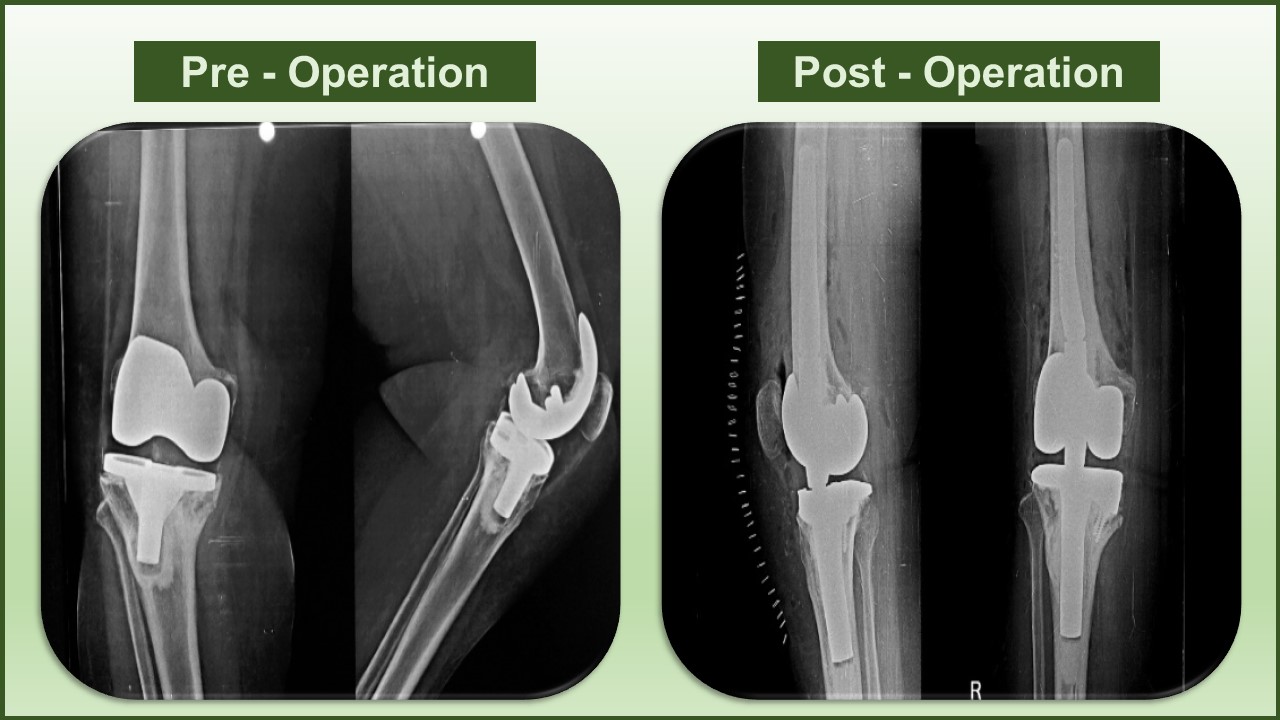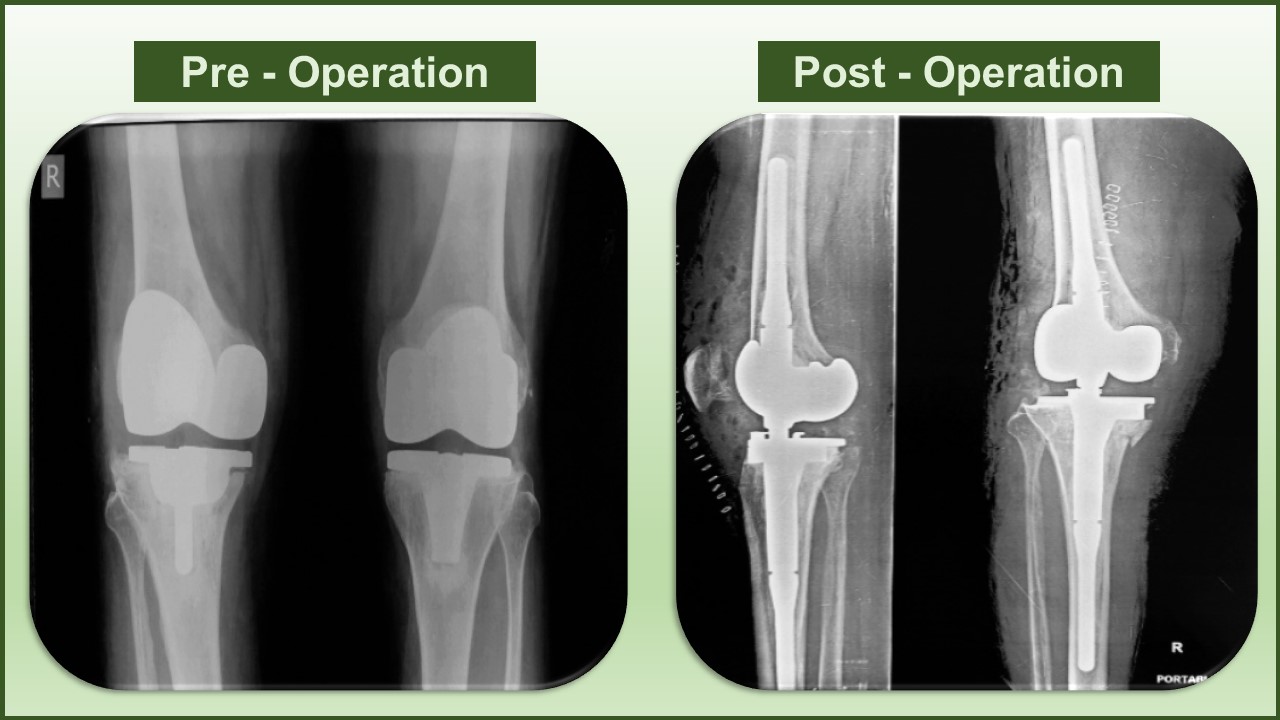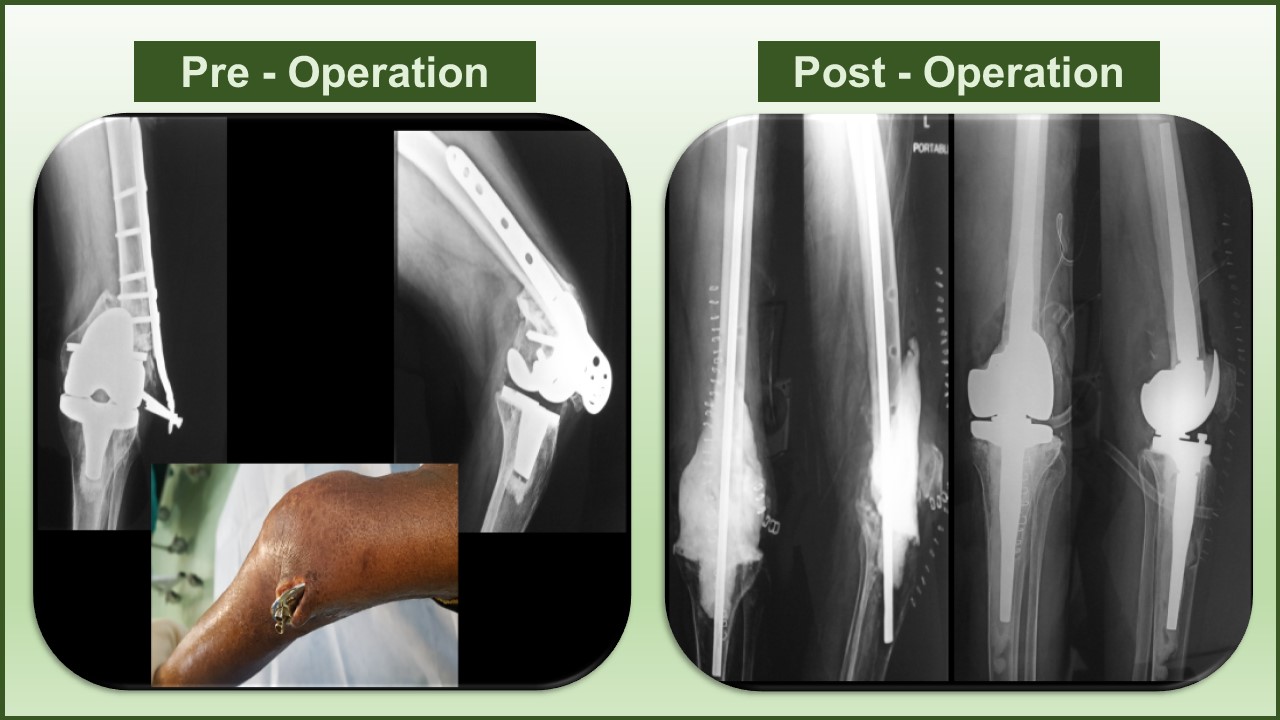As the population ages and lifestyles change, the demand for knee replacements continues to surge. With an ageing demographic and increasing rates of primary knee replacements, Welcome to a detailed Q&A on revision knee replacement by reputed robotic surgeon in Delhi Dr Simon Thomas, it is a vital aspect of orthopaedic surgery re-intervening in a previously replaced knee joint.
In Revision Knee Replacement procedure, the previously implanted artificial knee joint is replaced with a new implant. Current primary knee joints have a longer life compared to previous generation implants. A patient undergoing primary knee replacement can expect good functioning of the joints for upto two decades and more.
The above statement is based on the survival studies from around the world. The duration that the implants will last is still being studied and with better techniques and good patient health we expect our primary knee implants to break all records of survival in the coming future.
In case the knee implant becomes loose, wears out over a period of time, or gets infected we can remove the old implant and surgically place a new implant.This is called a revision surgery or revision knee replacement.Majority of periprosthetic fractures re fixable without any revision. Some periprosthetic fracture may also require revision surgery.


With increasing numbers of primary joint replacement being done around the world, the number of revision surgeries are going up. Patients undergoing Revision knee replacement surgery can expect as early and good recovery as a primary knee replacement. Patients are able to get up from bed and do activities of daylily living like going to washroom immediately after surgery. Dr Simon Thomas has active interest and good experience in knee joint revision surgery. All his advanced fellowships and training have been in revision surgery.
The results of revision surgeries being done by Dr Simon Thomas at Delhi Institute of Trauma and Orthopedics are comparable to the best centers in the world. We are equipped to give you world class experience after your revision knee replacement.

Frequently Asked Questions
Revision knee arthroplasty involves the replacement of a previously implanted artificial knee joint with a new prosthesis. In severe conditions patients need to undergo revision knee arthroplasty in Delhi,
The conditions include wear and tear of the original joint leading to loosening or instability, infection around the implant, bone loss or damage around the knee joint, or failure of the initial knee replacement due to mechanical issues.
Revision knee arthroplasty involves the replacement of a previously implanted artificial knee joint with a new prosthesis. In severe conditions patients need to undergo revision knee arthroplasty in Delhi,
The conditions include wear and tear of the original joint leading to loosening or instability, infection around the implant, bone loss or damage around the knee joint, or failure of the initial knee replacement due to mechanical issues.
The rising cases of revision knee arthroplasty are due to ageing population, resulting in more individuals with existing knee replacements needing surgeries as these prosthetic joints age and face complications. Plus, younger patients who are undergoing knee replacements will likely require revisions over their lifetimes.
Initial knee replacements fail due to following reasons.
- The wear and tear of the artificial joint components over time, causing implant loosening or instability.
- Infections around the implant, causing failure.
- Bone loss or damage around the knee joint
- The implant-related complications such as fractures or dislocations can necessitate revision surgeries.
Patients can adopt following measures to prolong the life of their knee replacements:
- Maintaining a healthy weight reduces stress on the artificial joint
- Engaging in appropriate physical activities, following post-surgery rehabilitation programs,
- Taking prescribed medicines for preserving the functionality of the implanted joint
Following risk factors can lead to the need of revision knee arthroplasty:
- Obesity increases stress on the artificial joint causing earlier failure.
- Other factors include a history of previous joint surgeries, inflammatory joint diseases like rheumatoid arthritis, osteoporosis leading to weakened bones, and certain occupations or activities that subject the knee joint to repetitive stress
Diagnosing a failed knee replacement involves clinical examination imaging studies like X-rays, CT scans, or MRIs to assess implant position, bone quality, and signs of wear or instability. There may be a need for Laboratory tests, such as joint fluid analysis in case of suspected infection in confirming diagnoses.
Yes, revision knee arthroplasty has challenges due to the altered anatomy and loss of bone stock from the initial surgery. Ortho Surgeons in Delhi have to address bone defects or failure to ensure stable implant fixation. In some cases, bone grafting or metal augments, are necessary to reconstruct bone deficiencies. Additionally, scar tissue adds complexity to the surgery.
Enhanced implant surfaces with improved coatings provides better integration with surrounding bone, giving stability and longevity. Modular implant systems allow flexibility, enabling surgeons to address bone defects. Highly cross-linked polyethene components reduced wear rates, potentially extending implant lifespan.
Book Appointment as per OPD schedule
Dr.Simon Thomas Robotic Joint Replacement Centre KP-4, Pitampura, Gopal Mandir Road, New Delhi (Near City Park Hotel)
Tuesday: 05:00 PM – 08:30 PM
Wednesday: 03:00 PM – 05:00 PM
Thursday: 05:00 PM – 08:30 PM
Friday: 05:00 PM – 08:30 PM
Max Hospital, Shalimar Bagh, New Delhi
Monday: 3:00 PM to 6:00 PM
Tuesday: 12:00 PM to 3:00 PM
Thursday: 12:00 PM to 3:00 PM
Friday: 12:00 PM to 2:00 PM
Saturday: 2:00 PM to 5:00 PM









